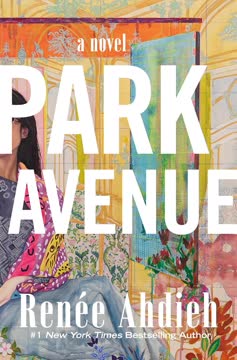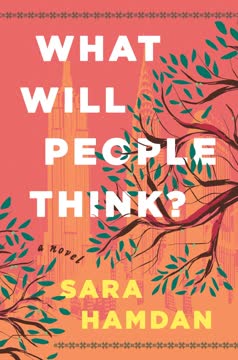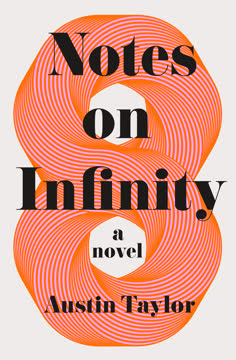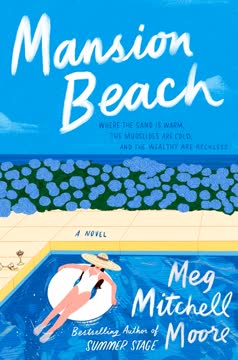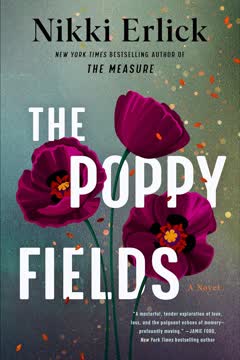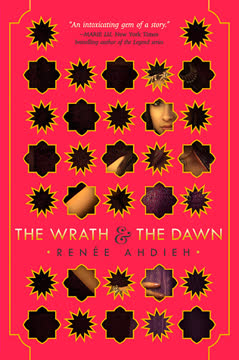Plot Summary
The Most Beautiful Bag
Jia Song, the daughter of Korean immigrants, grows up in New York City, straddling two cultures and expectations. Her life pivots the day a glamorous socialite, Lexi Niarchos, enters her family's bodega with an Hermès Birkin bag. The encounter plants a seed of longing in Jia—a desire for beauty, power, and the invisible armor that luxury can provide. This moment becomes a symbol for Jia's ambitions, fueling her drive to escape the limitations of her upbringing and to prove her worth in a world that often overlooks people like her.
Family Ghosts and Gochujang
Jia's childhood is marked by both overt racism and the quiet strength of her family. She learns to fight back—sometimes literally, as in the infamous "Gochujang Caper"—and is shaped by the expectations of her immigrant parents and the ghostly charge of her grandfather, who tasks her with caring for the family. These formative experiences instill in Jia a fierce sense of responsibility, a complicated relationship with her Korean identity, and a hunger to succeed on her own terms.
Firebreathers and First Impressions
As a junior partner at a prestigious Manhattan law firm, Jia is assigned a high-stakes case involving the Park family, Korean American billionaires who built a beauty empire from nothing. The case is a personal favor from the firm's managing partner, Ben Volker, and represents Jia's shot at making senior partner. But the assignment is fraught: the Parks are embroiled in a bitter divorce, and their family dynamics are as volatile as their fortune is vast.
The Parks of Park Avenue
Jia's investigation introduces her to the three Park siblings—Sora, Suzy, and Minsoo—each with their own wounds and rivalries. Their mother, Jenny, is dying of cancer, and their father, Seven, is divorcing her and hiding the family's wealth. The siblings are united only by their desire to protect their mother and their inheritance, but old resentments and secrets threaten to tear them apart. Jia must navigate their dysfunction, earning their trust while maintaining her professional distance.
Sibling Rivalry Unleashed
The Parks' family meetings are battlegrounds. Sora, the icy eldest, and Suzy, the rebellious artist, are estranged after a scandal involving Sora's husband. Minsoo, the youngest, is caught between loyalty and self-preservation. Their interactions are laced with bitterness, humor, and pain, exposing the ways in which immigrant ambition, generational trauma, and the hunger for approval can both bind and destroy a family.
The Divorce and the Deceit
Seven Park's divorce strategy is ruthless: he claims the family fortune is a fraction of its true value, offering Jenny a pittance. The siblings suspect he's hidden hundreds of millions offshore. Jia, with the help of the Parks' trusted house manager Darius, embarks on a global hunt for evidence—racing against time, legal obstacles, and Seven's network of spies. The search takes them from New York to Scotland, Paris, and the Cayman Islands, each location revealing new layers of deception.
The Birkin Obsession
Throughout the case, Jia's fixation on acquiring her own Birkin bag becomes a motif for her longing for acceptance, security, and self-worth. The bag is both a shield and a symbol—a reminder of what she's fighting for, and of the invisible barriers that still separate her from the world of the Parks and their peers. Her pursuit of the Birkin mirrors her pursuit of professional and personal validation.
Secrets in the Safe
Jia and Darius's investigation uncovers a hidden safe in the Parks' Cayman Islands mansion, containing coded notebooks and bank statements that could expose Seven's financial crimes. But their efforts are repeatedly sabotaged by a mysterious mole within the family's inner circle. Documents disappear, allies become suspects, and Jia is forced to question whom she can trust—including Darius, with whom she shares a growing, complicated attraction.
Betrayal in the Bloodline
As the siblings close in on the truth, old alliances fracture. Suzy accuses Minsoo of conspiring with their father; Minsoo admits he was tempted by Seven's offer to make him CEO. Sora and Suzy's relationship erupts in a public confrontation, dredging up years of pain and betrayal. Jia, caught in the crossfire, must decide whether to prioritize justice, her career, or her own moral compass.
The Mole in the Mansion
The investigation is repeatedly undermined by leaks and betrayals. Jia suspects everyone—Darius, the siblings, even herself. The tension culminates in Greece, where the family gathers on their yacht, the Marado, for what is supposed to be Jenny's final days. As the siblings plot to force Seven's hand, Jia is drawn into a web of coercion, blackmail, and ethical compromise, forced to choose between complicity and conscience.
Death on the Aegean
In a stormy night on the Aegean, Jenny Park vanishes overboard. Seven claims it was an accident; the siblings accuse him of murder. In the chaos, they coerce Seven into surrendering control of the family fortune, threatening to testify against him if he refuses. Jia, as their attorney, is complicit in the cover-up, haunted by doubts about what really happened and whether justice has been served.
The Resurrection of Jenny Park
In a stunning revelation, Jia learns that Jenny Park is alive. Her death was staged—a meticulously planned escape, leveraging her skills as a haenyeo (Korean free diver) and the chaos of the family's infighting. Jenny orchestrated the entire drama to force her husband's hand, unite her children, and reclaim her own agency. She emerges as the true architect of the family's future, offering Jia a new role as Mirae's corporate counsel.
Justice, Lies, and Forgiveness
With Jenny at the helm, the Parks begin to rebuild—redistributing power, wealth, and responsibility. Jia must reckon with her own choices: the lies she told, the lines she crossed, and the meaning of justice in a world where truth is always negotiable. The siblings, scarred but wiser, begin to forgive each other and themselves. Jia, too, learns to forgive herself, embracing the possibility of love, belonging, and a future not defined by fear or ambition alone.
A Future Filled with Green
Jia is offered everything she thought she wanted: partnership at her firm, a Birkin bag, and the admiration of her peers. But she realizes that true fulfillment lies elsewhere—in meaningful work, authentic relationships, and the courage to dream beyond the boundaries set by others. She accepts Jenny's offer, stepping into a new role that honors both her heritage and her individuality.
Singin' in the Rain
The novel closes with Jia surrounded by friends and family, hosting a potluck in her apartment. The rain falls outside, echoing the motif of cleansing and renewal. Darius, now a trusted partner, invites her for a walk in the rain—a gesture of hope, vulnerability, and the promise of a love built on honesty and mutual respect. Jia steps into the future, not as an outsider or an imposter, but as the author of her own story.
Characters
Jia Song
Jia is the daughter of Korean immigrants, shaped by the pressures of straddling two cultures and the trauma of always feeling "other." Her drive to succeed is fueled by both pride and insecurity, symbolized by her obsession with the Birkin bag. As a lawyer, she is sharp, ethical, and relentless, but her greatest struggle is learning to trust herself and accept that worth is not measured by external validation. Over the course of the novel, Jia evolves from a people-pleaser and outsider to a woman who claims her own power, redefines success, and chooses love and community over status.
Jenny Park (Park Jeeyun)
Jenny is the heart of the Park family—a woman who has endured betrayal, illness, and the corrosive effects of wealth. Initially presented as a passive victim, she is ultimately revealed as the architect of her own resurrection, orchestrating her "death" to save her children and reclaim her agency. Jenny's journey is one of self-forgiveness and transformation; she moves from self-sacrifice to self-love, teaching her family (and Jia) that true strength lies in vulnerability and the courage to dream.
Sora Park-Vandeveld
Sora is the embodiment of Korean American perfection: beautiful, accomplished, and emotionally guarded. Her marriage is a façade, her relationship with her twin sister shattered by betrayal. Sora's arc is one of thawing—learning to express pain, forgive, and accept imperfection. She is both a rival and a mirror for Jia, challenging her to confront her own fears and ambitions.
Suzy Park
Suzy is the family's black sheep, using humor, provocation, and self-destruction to mask her pain. Her relationship with Sora is fraught, but beneath the bravado lies a desperate longing for connection and acceptance. Suzy's journey is about confronting shame, embracing vulnerability, and rediscovering the bonds of sisterhood.
Minsoo Park
Minsoo is the youngest Park sibling, caught between loyalty to his family and the temptation of his father's approval. As a gay man in a traditional family, he is both insider and outsider, skilled at navigating power dynamics but haunted by self-doubt. Minsoo's arc is about choosing integrity over ambition and finding his own voice amid the family's chaos.
Seven Park (Chilsoo)
Seven is the self-made billionaire who built Mirae from nothing, only to destroy his family in pursuit of more. Charismatic and ruthless, he is both a product and a perpetrator of generational trauma. His downfall is engineered by the very people he sought to control, and his legacy is ultimately one of loss and regret.
Darius Rohani
Darius is the Parks' house manager and Jia's eventual love interest. The son of Iranian immigrants, he shares Jia's outsider status and her commitment to integrity. Darius is both a source of comfort and a catalyst for Jia's growth, challenging her to trust, to risk vulnerability, and to choose love over fear. His own journey is about honoring his father's legacy and finding belonging in a found family.
Ben Volker
Ben is the managing partner at Jia's law firm, representing both opportunity and the limitations of traditional success. He is pragmatic, supportive, but ultimately invested in the status quo. His role is to test Jia's ambitions and force her to define success on her own terms.
Annika Bergström (Ani)
Ani is Seven's much younger fiancée, a brilliant and beautiful outsider who disrupts the family's fragile equilibrium. She is both a rival and a warning—a reminder of the costs of ambition without empathy, and of the ways women are pitted against each other in patriarchal systems.
The Mole
The "mole" sabotaging Jia's investigation is ultimately revealed to be Jenny Park herself, orchestrating events to force her family's hand. This revelation reframes the entire narrative, challenging assumptions about victimhood, agency, and the power of storytelling.
Plot Devices
Dual Narratives and Unreliable Narration
The novel alternates between Jia's close third-person perspective and interludes from an anonymous narrator, later revealed to be Jenny Park. This structure creates dramatic irony, foreshadows the final twist, and invites readers to question the nature of truth, loyalty, and justice. The unreliable narration mirrors the characters' own self-deceptions and the ways in which family stories are constructed, revised, and weaponized.
The Birkin Bag as Symbol
The Birkin bag recurs as a motif for Jia's longing for acceptance, security, and self-worth. It represents both the allure and the emptiness of material success, and its pursuit parallels Jia's journey toward self-acceptance. The bag's unattainability underscores the novel's critique of the American Dream and the costs of assimilation.
The Family as Microcosm
The Park family's saga is both a specific story of Korean American experience and a universal exploration of family, power, and identity. The siblings' rivalries, betrayals, and reconciliations dramatize the tensions between tradition and modernity, duty and desire, and the ways in which love and harm are often inseparable.
Legal Thriller Structure
The novel employs the conventions of a legal thriller—mystery, investigation, courtroom drama—but subverts them by centering emotional stakes and moral ambiguity. The search for hidden assets becomes a metaphor for the search for truth, belonging, and self-forgiveness.
The Mole and the Twist
The recurring sabotage of Jia's efforts, attributed to a mysterious mole, builds suspense and mistrust. The revelation that Jenny Park is both the mole and the architect of her own "death" reframes the entire story, challenging readers to reconsider agency, victimhood, and the ethics of deception.
Analysis
Park Avenue is a dazzling, multi-layered exploration of family, ambition, and the immigrant experience, blending the propulsive energy of a legal thriller with the emotional depth of a generational saga. Renée Ahdieh interrogates the costs of the American Dream, the corrosive effects of wealth, and the ways in which women—especially women of color—are forced to navigate systems designed to exclude them. The novel's central twist, revealing the matriarch as both victim and mastermind, subverts expectations and reclaims agency for characters often relegated to the margins. Through Jia's journey, the book argues that true success is not measured by status, money, or even the acquisition of a Birkin, but by the courage to define one's own worth, to forgive oneself, and to choose love and community over fear and competition. In a world obsessed with appearances and achievement, Park Avenue insists on the messy, redemptive power of honesty, vulnerability, and dreaming beyond what others say is possible.
Last updated:
FAQ
```markdown
Synopsis & Basic Details
What is Park Avenue about?
- Ambitious Lawyer's High-Stakes Case: Park Avenue follows Jia Song, a driven Korean American junior partner at a top Manhattan law firm, as she takes on a high-profile case for the Park family, Korean American billionaires embroiled in a bitter divorce. This case is her chance to make senior partner and secure her family's future.
- Family Secrets and Hidden Fortunes: The story delves into the dysfunctional dynamics of the Park family, whose matriarch, Jenny, is dying of cancer, while patriarch Seven attempts to hide hundreds of millions in assets. Jia must navigate sibling rivalries, betrayals, and a global hunt for evidence, all while grappling with her own complicated past and a burgeoning attraction to the family's house manager, Darius.
- Quest for Justice and Self-Discovery: Beyond the legal thriller, the novel explores themes of immigrant identity, the corrosive nature of wealth, and the pursuit of personal fulfillment. Jia's journey is one of self-discovery, as she confronts ethical dilemmas, redefines success, and ultimately learns to trust her instincts and embrace a future beyond the expectations of others.
Why should I read Park Avenue?
- Intricate Plot Twists and Moral Ambiguity: Readers who enjoy complex narratives with unexpected turns will be captivated by Park Avenue's layered plot, especially the shocking revelation about Jenny Park. The story constantly challenges perceptions of good and evil, forcing readers to grapple with difficult ethical questions.
- Deep Dive into Immigrant Identity & Wealth: The novel offers a nuanced exploration of the Korean American experience, contrasting the struggles of first-generation immigrants with the pressures faced by their ultra-wealthy children. It critiques the "American Dream" and the often-corrosive impact of extreme wealth on family dynamics and personal values.
- Rich Character Development and Emotional Resonance: Beyond the suspense, the book excels in portraying deeply flawed yet relatable characters. Jia's internal struggles, her relationships with her friends and family, and her evolving understanding of love and ambition provide a powerful emotional core that resonates long after the final page.
What is the background of Park Avenue?
- Korean American Cultural Context: The novel is deeply embedded in the Korean American experience, exploring themes of assimilation, generational expectations, and the unique pressures faced by children of immigrants. References to Korean food (gochujang, buldak ramyun, kimbap, budae jjigae), language (jondaemal, banmal, saturi), and cultural norms (respect for elders, family loyalty, chaebol aspirations) are woven throughout, enriching the narrative.
- Critique of Ultra-Wealth and Social Stratification: Park Avenue meticulously details the world of Manhattan's ultra-rich, from Hermès Birkin bags and private jets to exclusive social circles and high-stakes legal battles. It highlights the stark contrast between this world and Jia's humble Lower East Side upbringing, exposing the pretentiousness, moral compromises, and hidden anxieties that often accompany immense wealth.
- Legal and Financial Intrigue: The story is set against the backdrop of high-stakes corporate law and international finance, involving offshore accounts, forensic accounting, and complex divorce proceedings. This provides a realistic framework for the mystery, grounding the family drama in the intricate mechanics of wealth management and legal strategy.
What are the most memorable quotes in Park Avenue?
- "If you're going to tell a lie, make it a good one.": This epigraph, attributed to Jia's mother, sets the stage for the novel's central theme of deception and truth. It foreshadows the intricate web of lies woven by various characters, particularly Jenny Park, and challenges the reader to consider the nature and purpose of lies, especially when they serve a greater, albeit morally ambiguous, goal.
- "The darkest paths often lead to the brightest light. All we need is a bit of faith.": Spoken by Hamish, Jia's Scottish driver, this quote encapsulates the novel's journey through moral ambiguity and personal struggle. It offers a glimmer of hope amidst the Parks' dark family secrets and Jia's own ethical compromises, suggesting that even the most difficult choices can ultimately lead to clarity and redemption.
- "I learned that I needed to stop seeking purpose beyond myself, whether it be to my work or to my family. I needed to look within so that I could become the love of my own life.": Jenny Park's profound realization near the end of the novel serves as its philosophical core. This quote highlights her transformation from a self-sacrificing matriarch to a woman who prioritizes self-love and inner peace, offering a powerful message about finding true fulfillment beyond external validation or societal expectations.
What writing style, narrative choices, and literary techniques does Renée Ahdieh use?
- Dual Narrative & Unreliable Storytelling: Ahdieh employs a compelling dual narrative structure, alternating between Jia's close third-person perspective and anonymous interludes. This technique creates dramatic irony and suspense, as the anonymous narrator (later revealed as Jenny Park) subtly misdirects the reader, challenging assumptions about victimhood and agency. This narrative choice is central to the novel's exploration of truth and perception.
- Rich Symbolism and Motif Repetition: The author masterfully uses recurring symbols like the Hermès Birkin bag (representing aspiration, armor, and the illusion of perfection), rain (cleansing, emotional release, new beginnings), and specific cultural references (Korean food, language, family dynamics) to deepen thematic meaning. These motifs are woven throughout, providing layers of subtext and emotional resonance.
- Sharp Dialogue and Internal Monologue: Ahdieh's dialogue is often witty, cutting, and revealing, especially in the exchanges between the Park siblings and Jia. This is balanced by Jia's extensive internal monologues, which expose her anxieties, ambitions, and moral dilemmas, allowing readers deep insight into her psychological state and growth. The contrast between outward presentation and inner turmoil is a key literary device.
Hidden Details & Subtle Connections
What are some minor details that add significant meaning?
- The "Gochujang Caper" as a Precursor: Jia's childhood act of defiance, hawking Korean hot sauce at racist bullies, is a seemingly minor anecdote but foreshadows her later willingness to fight fiercely and unconventionally for justice. It establishes her innate resilience and her readiness to use unexpected tactics, even if it means breaking rules, which becomes crucial in her handling of the Park family case.
- Darius's "Persian" Tardiness: Darius's casual explanation for being late ("Persian") and his anecdote about his cousin's three-hour-late wedding subtly hints at a cultural background that values relationships and a different pace of life over rigid punctuality. This detail contrasts with Jia's high-pressure, time-sensitive legal world and foreshadows his role as a grounding, more emotionally attuned presence in her life, offering a different perspective on time and priorities.
- Jenny Park's Crooked Bottom Teeth: When Jia observes Jenny Park's "crooked" and "discolored" bottom teeth contrasting with her "perfect porcelain veneers on top," it's a subtle visual metaphor for Jenny's true character. The veneers represent the polished, controlled facade she presents, while the natural, imperfect teeth symbolize her hidden strength, resilience, and the authentic, unvarnished truth beneath the surface, which she later reveals.
What are some subtle foreshadowing and callbacks?
- Harabugi's Prophecy and Jia's Destiny: Jia's grandfather's ghost telling her, "It will be up to you now to make sense of this mess," is a direct foreshadowing of her role in the Park family's chaos. The callback occurs when Suzy uses similar phrasing ("working together to make sense of everything") to describe the siblings' unity, subtly linking Jia's personal destiny to the professional challenge she faces, implying a deeper, almost fated connection to the case.
- The "Head of Snakes" Metaphor: Sora's challenge to Jia, "I need a head of snakes. Are you a head of snakes, Jia Song?" is a direct reference to Medusa, symbolizing vengeance and power. This foreshadows Jia's eventual embrace of a more ruthless, strategic approach to the case, willing to use cunning and even deception to achieve victory, mirroring Sora's own hardened resolve. It also subtly hints at the multi-headed nature of the family's problems.
- The "Janus Coin" and Minsoo's Duplicity: Suzy's derogatory term for Minsoo, "Janice," derived from the two-faced Roman god Janus, subtly foreshadows Minsoo's admission of considering his father's offer to become CEO. This early characterization hints at his internal conflict and potential for betrayal, reinforcing the idea that appearances can be deceiving and loyalty is fluid within the Park family.
What are some unexpected character connections?
- Sora and Darius's First Kiss: The revelation that Sora and Darius shared their first kiss is an unexpected detail that adds a layer of complexity to their relationship and Sora's character. It explains Sora's subtle possessiveness and disdain for Jia's attraction to Darius, hinting at unresolved feelings or a nostalgic connection to a simpler past before wealth and betrayal complicated their lives.
- Darius and Zain's Shared Internship: The discovery that Darius interned at CHM, the same firm as Zain Tawfik, Jia's ex-fiancé, creates a surprising link between Jia's past heartbreak and her current professional challenge. This connection not only explains Seven Park's strategic choice of Zain as his attorney but also deepens Jia's personal stake in the case, forcing her to confront her unresolved emotions and the weaponization of her vulnerabilities.
- Ani (Annika Bergström) as Sora's Former Roommate: The shocking revelation that Annika Bergström, Seven's pregnant fiancée, was Sora's college roommate, Annie Schmidt, is a profound and unexpected connection. This detail transforms Ani from a generic "other woman" into a direct source of Sora's deep-seated pain and betrayal, explaining the intensity of Sora's hatred and adding a personal, devastating dimension to the family's conflict.
Who are the most significant supporting characters?
- Como (Park Hyun Jung), Seven's Sister: Jenny's sister-in-law, Como, initially appears as a minor character but proves pivotal. Her deep knowledge of Seven's past financial dealings and his personality flaws provides Jia with crucial insights into his methods and motivations, including the existence of his "blue leather notebook." Her unwavering loyalty to Jenny, despite being Seven's sister, highlights the complex family loyalties and provides a moral compass for Jia.
- Hamish, the Scottish Driver: Hamish, with his theatrical flair and deep love for Scotland, serves as more than just a chauffeur. He offers Jia a moment of unexpected connection and cultural insight, reminding her of her beloved grandfather. His stories and the poem "Scots Wha Hae" provide a brief, grounding respite from the Parks' drama, subtly reinforcing themes of resilience, heritage, and finding strength in one's roots.
- Fiona, Orlagh Campbell's Daughter: Fiona's brief but impactful appearance, accusing the Park family of "murdering thieves" and delivering the crucial Cayman Islands bank statement, is a catalyst for the plot's darker turn. Her raw grief and conviction immediately raise the stakes, forcing Jia to confront the possibility of real danger and the moral implications of her investigation, pushing her beyond mere financial disputes.
Psychological, Emotional, & Relational Analysis
What are some unspoken motivations of the characters?
- Seven Park's Craving for Legacy and Control: Beyond simply hiding money, Seven's actions are driven by a deep-seated need for control and a desire to secure a specific legacy. His disdain for Minsoo's sexuality and his eagerness for a new male heir reveal an unspoken motivation to perpetuate a patriarchal dynasty, viewing his existing children as failures to his vision, rather than simply wanting to punish them for disloyalty.
- Sora's Pursuit of Vengeance as Self-Preservation: Sora's intense desire for her father to "feel pain" and "lose" is not just about justice; it's an unspoken attempt to reclaim her own shattered sense of self and protect her children from the emotional damage she endured. Her "frigid" exterior masks a profound vulnerability, and her fight against Seven is a desperate act of self-preservation, seeking to heal her own wounds by dismantling his power.
- Minsoo's Desire for Paternal Validation: Minsoo's internal conflict stems from an unspoken longing for his father's approval, despite Seven's homophobia and cruelty. His admission of considering the CEO offer, and his quiet volatility, reveal a deep-seated need to be seen as a worthy heir, even if it means compromising his values. This desire for validation is a powerful, often subconscious, driver of his actions.
What psychological complexities do the characters exhibit?
- Jia's "Trauma Response" to Betrayal: Jia's intense reaction to Darius's lie of omission about his legal background, and her subsequent "dicknotized" outburst, reveals a deep psychological complexity rooted in her past relationship with Zain. Her "trauma response" manifests as a heightened suspicion and a tendency to lash out, indicating that her professional ambition is intertwined with unresolved personal pain and a fear of being made a "fool" again.
- Suzy's Provocation as a Cry for Connection: Suzy's "predictably unpredictable" behavior, her bad jokes, and her public outbursts are psychologically complex coping mechanisms. Her constant need to provoke and shock, especially her sister Sora, is a desperate, albeit maladaptive, attempt to elicit a reaction and forge connection, stemming from a deep well of pain and a feeling of being unseen or unheard within her family.
- Jenny Park's Strategic Detachment and Self-Forgiveness: Jenny's ability to orchestrate her own "death" and manipulate her family demonstrates a profound psychological shift from passive victim to strategic mastermind. Her journey of "forgiving herself" for past failures, particularly in her marriage and parenting, allows her to achieve a detached, almost cold, resolve necessary for her elaborate plan, highlighting the psychological strength found in self-acceptance.
What are the major emotional turning points?
- Jia's Confrontation with Zain: The meeting at CHM where Seven Park reveals Zain Tawfik as his attorney is a major emotional turning point for Jia. It forces her to confront her past heartbreak head-on, transforming her lingering pain into a "frigid kind of rage." This moment solidifies her resolve to win, not just for her career, but as a personal triumph over a man who weaponized her vulnerabilities.
- Sora and Suzy's Noraebang Showdown: The explosive confrontation between Sora and Suzy at the Seoul noraebang, culminating in Suzy pouring expensive whiskey on the rug and Sora's raw admission of pain, is a critical emotional turning point. It shatters their long-standing silence and forces them to articulate their deep-seated resentments and hurt, paving the way for a fragile, yet genuine, reconciliation built on shared vulnerability.
- Jenny's "Death" and the Siblings' Unity: Jenny's staged death on the Aegean Sea is the ultimate emotional turning point for the Park siblings. The shock and grief, coupled with their immediate accusation of Seven, unite them in a common cause against their father. This shared trauma and collective action, albeit based on a lie, forces them to confront their family's dysfunction and work together, fulfilling Jenny's unspoken desire for their unity.
How do relationship dynamics evolve?
- Jia and Darius: From Suspicion to Trust: Their relationship evolves from initial professional distance, complicated by mutual attraction and Jia's distrust (exacerbated by Darius's omissions and the mole's sabotage), to a tentative but profound bond built on "rigorous honesty." Darius's unwavering support and willingness to be vulnerable, despite Jia's accusations, ultimately earns her trust, laying the groundwork for a future romantic connection.
- Sora and Suzy: From Estrangement to Fragile Alliance: The twin sisters' relationship transforms from years of bitter estrangement, fueled by betrayal and resentment, to a fragile but powerful alliance. Their emotional outburst at the noraebang, followed by Sora's unexpected support for Jia at CHM, marks a turning point where their shared hatred for their father and a renewed understanding of each other's pain begin to mend their fractured bond.
- The Park Siblings and Seven: From Filial Duty to Collective Rebellion: The children's relationship with their father shifts dramatically from a complex mix of fear, resentment, and a lingering desire for approval to outright rebellion. Seven's escalating betrayals and Jenny's "death" galvanize Sora, Suzy, and Minsoo into a united front, culminating in their collective blackmail and usurpation of his power, fundamentally altering the family's power dynamics.
Interpretation & Debate
Which parts of the story remain ambiguous or open-ended?
- The True Extent of Seven Park's Guilt: While the siblings accuse Seven of pushing Jenny overboard, and Jia is complicit in the cover-up, the narrative leaves the definitive truth of his culpability ambiguous. Jenny's own account of her staged death doesn't explicitly confirm whether Seven intended to harm her, only that he "pushed her back, more forcefully than necessary." This ambiguity forces readers to grapple with the subjective nature of truth and the power of narrative in shaping perceptions of guilt.
- The Long-Term Impact of Jenny's Deception: Jenny's elaborate plan successfully unites her children and reclaims her agency, but the long-term psychological impact of her deception on her children remains open-ended. While they are initially united, the revelation that their mother faked her death and manipulated them could lead to new forms of trauma or resentment, leaving the true healing of the Park family as an ongoing, uncertain process.
- Jia and Darius's Future Relationship: The novel concludes with Jia and Darius stepping into the rain, holding hands, and acknowledging their mutual attraction, but their romantic future is left open-ended. Jia still needs "time to decide what I want" and "figure out what the love of my life should be." This ambiguity suggests that while they have found a connection, the path to a stable, trusting relationship is still a journey, reflecting the complexities of healing from past hurts.
What are some debatable, controversial scenes or moments in Park Avenue?
- Jenny Park's Staged Death and Blackmail of Seven: The most controversial aspect of the novel is Jenny's decision to fake her death and orchestrate the blackmail of her husband. While presented as a means to unite her children and reclaim her agency, it involves significant deception, emotional manipulation, and potentially illegal acts. Readers may debate whether her ends justify her means, and if her actions truly represent justice or merely a different form of power play.
- Jia's Complicity in the Cover-Up: Jia's choice to remain silent and allow the Park siblings to lie to the Greek authorities about Jenny's "death" is a highly debatable moment. As an attorney, she has an ethical obligation to uphold the law, yet she prioritizes her clients' (and Jenny's) desired outcome. This forces a discussion on professional ethics versus personal morality, and whether Jia's actions are a betrayal of her principles or a pragmatic choice in a morally compromised world.
- Sora's "Forgive You? Then Go Off and Die" Comment to Suzy: Sora's brutal words to Suzy at the noraebang, telling her to "go off and die" if she wants forgiveness, are deeply controversial. While born from profound pain and betrayal, the cruelty of the statement is shocking. This scene sparks debate about the limits of forgiveness, the lasting damage of sibling rivalry, and whether some wounds are too deep to ever truly heal, even in the face of reconciliation.
Park
Review Summary
Park Avenue has received mostly positive reviews, with an average rating of 3.81 out of 5. Readers praise its engaging plot, complex characters, and exploration of Korean-American culture. Many compare it to "Crazy Rich Asians" and "Succession," noting its blend of family drama, legal intrigue, and luxury lifestyle. Some criticize pacing issues and underdeveloped romantic subplots. Overall, it's described as a fun, fast-paced summer read with unexpected depth, offering insights into class, ambition, and cultural identity.
Similar Books
Download PDF
Download EPUB
.epub digital book format is ideal for reading ebooks on phones, tablets, and e-readers.
